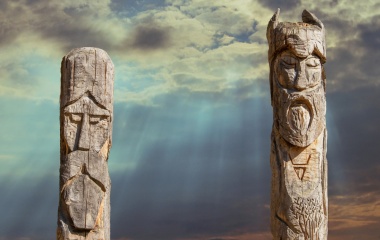People often mistakenly think that truly righteous people are somehow different, perhaps not totally "normal". Somehow we assume that…

Vayigash: A Pilot Trip
"And he [Yaakov] sent Judah ahead of him l'horot, to make preparations, in Goshen (Breisheet 46:28). With great fear and trepidation,…

Mikeitz: Home Sweet Home
That one has a natural love for one's place of birth is a truism long recognized by our Talmudic sages. Emigration is never an easy prospect,…

VaYeshev: The Successful Man
Our Sages attach the appellation Tzadik, righteous one, to Yosef, presumably because of his ability to withstand the sexual advances of Potiphar’s…

VaYishlach: The Unsung Hero
How common it is for people to return from a funeral and realize how little they knew about the deceased. All too often, it is only after a person…

VaYetze: From Yaakov to Yisrael
“And Yaakov was a pure man, dwelling in the tents” (Breisheet 25:27). Like his father before him, Yaakov had little interest in the wider…

Toldot: The Strength of Yitzchak
Our Sages identified each of our patriarchs and matriarchs with the character traits that they best exemplified. Avraham, the master of hospitality…

Chayei Sarah: Growing Old, Staying Young
"And Sarah lived one hundred years, twenty years and seven years; these are the years of Sarah's life” (Breisheet 23:1). A famous…

VaYera: Moving Out of Town
One of the fundamental issues of debate amongst observant Jews regards the degree of openness with which one meets the surrounding culture. Should we…

Lech Lecha: In Defence of Terach
Our rabbis famously debate the righteousness of Noach. Was he a tzadik only relative to the corrupt society in which he lived, or was his…

Noach: Defending Noach
For years, psychologists have debated the impact of the environment (nurture) on the development of human beings. Can we be inherently changed by…

Breisheet: Sin and Sinning
The holidays of Tishrei—with their emphasis on sin, repentance, reconciliation, and joy—are behind us. It is time to get back to our “normal”…

V'zot HaBracha: From G-d to Man
When writing a book, a good author will introduce the major themes of the book in the opening chapters, develop these and other secondary themes…

Vayelech: Poetic Licence
"Now, write for yourselves this song and teach it to the Israelites, so that this song will be a witness for the Israelites" (Devarim…

Nitzavim: Pass the Water
"You are standing this day all of you before the Lord your God: your heads, your tribes, your elders, and your officers, all the men of Israel…

Ki Tavo: Speak Up
One of the key aspects of our being created in the Divine image is the gift of speech. As the world was created with ten Divine utterances (Avot 5:1…

Ki Teitzei: On The Way
Until modern times, travel was viewed as something best avoided. It was slow, uncomfortable, and often quite dangerous. Our rabbis even instituted a…

Shoftim: Nothing to Fear
The basic duty of every government is to provide security and protect its citizens from both internal criminal activity and external enemies. Parshat…

